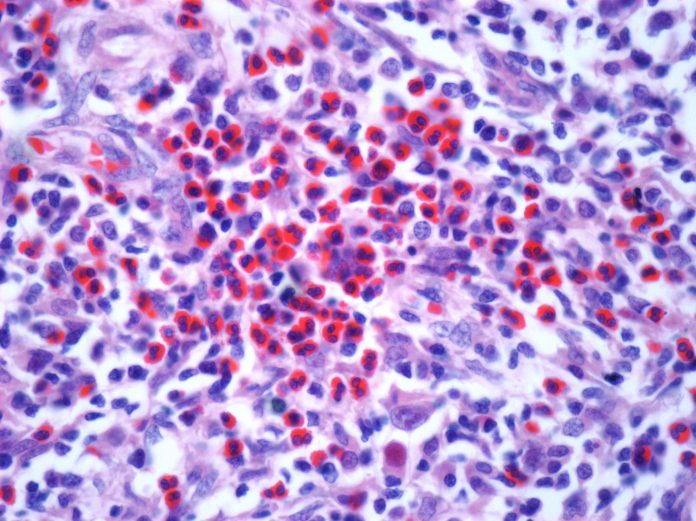
People with early-stage Hodgkin lymphoma are now more likely to die from cardiovascular disease than their cancer, reveal results from a long-term cohort study led by Southern Medical University in Guangzhou, China.
Hodgkin lymphoma accounts for around 10% of all lymphomas and treatment advances mean that the 10-year survival rate is 80%. However, among survivors, studies have shown an increased risk of cardiovascular disease compared with the general population.
The current study highlights the fact that while survival of patients with this kind of cancer has increased significantly, current treatments may need to be improved to reduce the risk of heart disease and other adverse effects.
“We conducted this study because cardiovascular disease may be the most common non-malignant long-term complication and a prevalent cause for non-malignant death following treatment in Hodgkin lymphoma survivors,” said senior author Caiwen Ou, Southern Medical University in Guangzhou, China, in a press statement.
As described in the journal Cancer, the study used data from a U.S.-based cohort study including 15,889 patients diagnosed with classic Hodgkin lymphoma between 1983 and 2015. The study participants were a wide range of ages at diagnosis and were followed up from diagnosis to time of death or last follow-up (minimum two months).
At 5 and 10 years of follow-up, the researchers found that those with stage I and stage II classic Hodgkin lymphoma were significantly more likely to have died from cardiovascular disease than cancer, independent of factors such as age at diagnosis, ethnicity, sex, and whether or not surgery was performed.
Absolute excess risk for cardiovascular disease ranged from 23.7–48.5 in those with stage I cancer, depending on the follow-up interval. In those with stage II disease, the absolute excess risk was most apparent in those with 10-15 and more than 15 years follow-up at 8.2 and 24.4, respectively. Even in stage III Hodgkin lymphoma, there was also some excess cardiovascular disease risk over time.
“We showed that the cumulative incidence of cardiovascular disease and classic Hodgkin lymphoma mortality among the entire population diagnosed in 1983–1992, 1993–2002, and 2003–2015 decreased in sequence, but the degree of decrease of cardiovascular disease was much lower than that of classic Hodgkin lymphoma,” wrote the authors.
“Our results indicate that more effective measures are needed to reduce the risk of cardiovascular disease-related deaths in classic Hodgkin lymphoma survivors,” said co-author Weijing Feng, also based at Southern Medical University.













